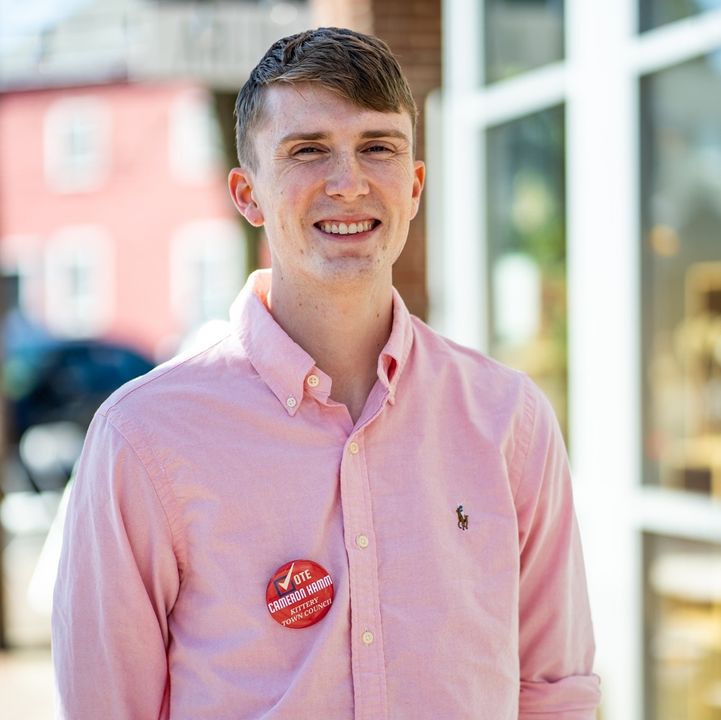Kittery Town Council Candidates
Respond to Climate Questions
KitteryCAN reached out to the six candidates running for Kittery Town Council to ask them how Kittery can become a more resilient town. We asked each candidate two questions:
- Are you familiar with the recently released statewide Climate Action Plan called Maine Won’t Wait? How can Kittery advance goals set forth in this plan to move towards net-zero carbon emissions by 2045?
- What do you see as the greatest threats to our community from a changing climate and what broad plans have you considered for your potential role as a town councilor?
Bob Gray
While growing up in Kittery, my playground was the woods that at the time ranged virtually uninterrupted and undeveloped from Cromwell and Boush streets through what is now the Dion Avenue neighborhood, Roger's Park, Scot Moffatt's property and all the way to Shepards Cove. I have watched the development of Kittery and the changes in its environment ever since.
We've come a long way environmentally since then. I remember having to be careful about when we swam in Spruce Creek. Depending on tides and conditions at the old Imhoff Tank that used to be at the end of Phelps Street, fecal matter floating in the Creek was a common site. Direct discharge of home sewage, which was still fairly common then also contributed to the problem. The Imhoff Tank is gone, direct discharge has been done away with, and Spruce Creek much cleaner now. It's also good to no longer see the billows of black smoke that used to emanate from boilers on the Navy Yard, the Schiller Plant, and the Daniels Street Power Plant (where Harbour Place is now) in Portsmouth. The environmental issues we face now are usually less visible, but at least as important.
My wife Shea and I grew up in the 50's, 60's, and 70's. We've both been sensitive to environmental issues since then. I participated in my first environmental rally in California in 1968. In 1970, I had the privilege and pleasure to spend a week sailing and working with Pete Seeger on the sloop Clearwater. During my four years in the United State Coast Guard, along with search and rescue, a lot of our mission was monitoring and enforcing environmental and fishery laws.
Most of my professional career was in the field of automation. Much of that automation on which I worked was aimed at making manufacturing and buildings more energy efficient. For almost 20 years before retiring, I worked for Schneider Electric, the Global Energy Management Specialists, where we were focussed on more efficient electrical distribution and consumption in industry, buildings and residential.
Since we married in 1973, Shea and I have tried to live in such a way as to minimize our negative and maximize our positive impact to the environment. Shea has always been an avid gardener, having gardens on our little 8200 square foot lot in Admiralty Village and at her childhood home here on Manson Road where we now reside. We generate very little trash here and compost whatever we can. Over half our property is wooded and was let go for many years. We're managing the property so as to remove as much dead wood and invasive plants as much as possible while improving the habitat for wildlife. (We've had Woodcock on our property the past two years after decades of absence.) We also keep bees and have helped new beekeepers get started with their hives.
We've taken many steps to make our 110 year old house more efficient. Incandescent and fluorescent lights have been replaced with LEDs. We replaced an ancient oil-fired boiler with a new, cleaner and more efficient natural gas-fired boiler. I've also automated much of the lighting and thermostats in our home, resulting in further reductions in energy usage. Shifting to natural gas and automating the thermostats resulted in reducing our heating bill and total BTUs consumed by about two-thirds.
Both Kittery and the State of Maine are headed in a good direction. According to the Energy information Agency, in 2019 eighty percent of Maine's electricity generation came from renewable resources with hydro providing 31%, wind at 24% and biomass at about 25%. Maine leads the other New England States and it sixth in the nation for wind generation. Maine Climate Council's "Maine Won't Wait" report outlines very well the environmental issues we're facing and sets goals and strategies to address those issues. According to "Maine Won't Wait" greenhouse gas emission percentages at 54% Transportation, 19% residential, 11% commercial, 9% industrial and 7% electric power generation. In order to achieve the goal of reductions in GHG emissions of 45% by 2030 and 80% by 2050, a large amount of effort should be put into transportation. "Maine Won't Wait" sets the goal of 219,000 electric vehicles registered in Maine in order to read the 2030 goal of 45% reduction in GHG. While focusing on transportation, attention must also be paid to Maine's tourist industry. Maine's 37+ million seasonal visitors and tourists.
Here in Kittery, we already have the Climate Adaptation Committee and its three subcommittees: Built and Natural Landscape Impacts, Energy Efficiency and Public Health and Safety. Their role as stated on the Town website : "The Climate Adaptation Committee will seek options to make Kittery more resilient in the face of risks associated with warming temperatures and rising seas." A Town Council representative seat on that Committee is vacant and, if elected, I will volunteer to fill that seat.
Kittery is also involved with the Southern Maine Regional Sustainability and Resilience Program and works with the Portsmouth Naval Shipyard in the Joint Land Use Study. A lot has been accomplished, but there is still a lot to do.
Climate change, however, is not the problem any more than the hole in the ozone was in the 1980's. Those and other situations are merely symptoms of the real problem. That real problem is that we have not been good stewards of this earth with which we have been entrusted. While we do need to address current situations, we need to take a much more holistic approach to how we treat our planet.
While I think it is important to hold corporations accountable for their place in contributing to the current environmental situation, each of us need to realize our role. We all have the power of the pursestrings. If we buy fewer products that come in plastic packages, the manufacturers will stop making them. If we stop patronizing places that serve their fare in single-use containers, the manufacturers will stop making them. If we stop buying huge gas-guzzlers, the car companies will stop making them. We are the market to whom the corporations and manufacturers respond.
This also applies to how we as a town purchase what we do. I think the Town Manager and Town Council realize this and have acted accordingly. Our streetlights have been replaced with LEDs. The Town has recently leased to electric vehicles at a very good price and is planning on installing EV chargers at the Town Hall.
So, I think a two pronged approach is in order: Legislation where necessary, education and fostering a culture of good stewardship always. Legislation may change people's behavior, but we can't legislate a change in people's minds. Educating people as to the issues involved , their role in addressing them, and fostering a culture of good stewardship can accomplish a change in attitude as well as behavior. If elected, I look forward to working with the Town Council and other town committees and boards to enact whatever ordinances are necessary to reach our environmental goals. I also look forward to continue to encourage a culture of good stewardship of our planet.
We've come a long way environmentally since then. I remember having to be careful about when we swam in Spruce Creek. Depending on tides and conditions at the old Imhoff Tank that used to be at the end of Phelps Street, fecal matter floating in the Creek was a common site. Direct discharge of home sewage, which was still fairly common then also contributed to the problem. The Imhoff Tank is gone, direct discharge has been done away with, and Spruce Creek much cleaner now. It's also good to no longer see the billows of black smoke that used to emanate from boilers on the Navy Yard, the Schiller Plant, and the Daniels Street Power Plant (where Harbour Place is now) in Portsmouth. The environmental issues we face now are usually less visible, but at least as important.
My wife Shea and I grew up in the 50's, 60's, and 70's. We've both been sensitive to environmental issues since then. I participated in my first environmental rally in California in 1968. In 1970, I had the privilege and pleasure to spend a week sailing and working with Pete Seeger on the sloop Clearwater. During my four years in the United State Coast Guard, along with search and rescue, a lot of our mission was monitoring and enforcing environmental and fishery laws.
Most of my professional career was in the field of automation. Much of that automation on which I worked was aimed at making manufacturing and buildings more energy efficient. For almost 20 years before retiring, I worked for Schneider Electric, the Global Energy Management Specialists, where we were focussed on more efficient electrical distribution and consumption in industry, buildings and residential.
Since we married in 1973, Shea and I have tried to live in such a way as to minimize our negative and maximize our positive impact to the environment. Shea has always been an avid gardener, having gardens on our little 8200 square foot lot in Admiralty Village and at her childhood home here on Manson Road where we now reside. We generate very little trash here and compost whatever we can. Over half our property is wooded and was let go for many years. We're managing the property so as to remove as much dead wood and invasive plants as much as possible while improving the habitat for wildlife. (We've had Woodcock on our property the past two years after decades of absence.) We also keep bees and have helped new beekeepers get started with their hives.
We've taken many steps to make our 110 year old house more efficient. Incandescent and fluorescent lights have been replaced with LEDs. We replaced an ancient oil-fired boiler with a new, cleaner and more efficient natural gas-fired boiler. I've also automated much of the lighting and thermostats in our home, resulting in further reductions in energy usage. Shifting to natural gas and automating the thermostats resulted in reducing our heating bill and total BTUs consumed by about two-thirds.
Both Kittery and the State of Maine are headed in a good direction. According to the Energy information Agency, in 2019 eighty percent of Maine's electricity generation came from renewable resources with hydro providing 31%, wind at 24% and biomass at about 25%. Maine leads the other New England States and it sixth in the nation for wind generation. Maine Climate Council's "Maine Won't Wait" report outlines very well the environmental issues we're facing and sets goals and strategies to address those issues. According to "Maine Won't Wait" greenhouse gas emission percentages at 54% Transportation, 19% residential, 11% commercial, 9% industrial and 7% electric power generation. In order to achieve the goal of reductions in GHG emissions of 45% by 2030 and 80% by 2050, a large amount of effort should be put into transportation. "Maine Won't Wait" sets the goal of 219,000 electric vehicles registered in Maine in order to read the 2030 goal of 45% reduction in GHG. While focusing on transportation, attention must also be paid to Maine's tourist industry. Maine's 37+ million seasonal visitors and tourists.
Here in Kittery, we already have the Climate Adaptation Committee and its three subcommittees: Built and Natural Landscape Impacts, Energy Efficiency and Public Health and Safety. Their role as stated on the Town website : "The Climate Adaptation Committee will seek options to make Kittery more resilient in the face of risks associated with warming temperatures and rising seas." A Town Council representative seat on that Committee is vacant and, if elected, I will volunteer to fill that seat.
Kittery is also involved with the Southern Maine Regional Sustainability and Resilience Program and works with the Portsmouth Naval Shipyard in the Joint Land Use Study. A lot has been accomplished, but there is still a lot to do.
Climate change, however, is not the problem any more than the hole in the ozone was in the 1980's. Those and other situations are merely symptoms of the real problem. That real problem is that we have not been good stewards of this earth with which we have been entrusted. While we do need to address current situations, we need to take a much more holistic approach to how we treat our planet.
While I think it is important to hold corporations accountable for their place in contributing to the current environmental situation, each of us need to realize our role. We all have the power of the pursestrings. If we buy fewer products that come in plastic packages, the manufacturers will stop making them. If we stop patronizing places that serve their fare in single-use containers, the manufacturers will stop making them. If we stop buying huge gas-guzzlers, the car companies will stop making them. We are the market to whom the corporations and manufacturers respond.
This also applies to how we as a town purchase what we do. I think the Town Manager and Town Council realize this and have acted accordingly. Our streetlights have been replaced with LEDs. The Town has recently leased to electric vehicles at a very good price and is planning on installing EV chargers at the Town Hall.
So, I think a two pronged approach is in order: Legislation where necessary, education and fostering a culture of good stewardship always. Legislation may change people's behavior, but we can't legislate a change in people's minds. Educating people as to the issues involved , their role in addressing them, and fostering a culture of good stewardship can accomplish a change in attitude as well as behavior. If elected, I look forward to working with the Town Council and other town committees and boards to enact whatever ordinances are necessary to reach our environmental goals. I also look forward to continue to encourage a culture of good stewardship of our planet.
Cameron Hamm
Colin McGuire
Josh Seymour
Strategy A: Embrace the Future of Transportation in Maine
It's not surprising to read that transportation is responsible for 54% of Maine’s annual greenhouse gas emissions. As a municipality, that should be the focal point of the importance of continuing to convert the town's fleet to EV vehicles. It has also brought great concern surrounding the amount of traffic coming to and from the Shipyard with much of it comprised of non-residents. One idea that I think Kittery could consider would be to create more public transportation or carpool locations for Shipyard employees. I have a couple friends who prefer this option because they live in Lebanon, ME and save considerably on commuting expenses. As the plan mentioned, Relaunching GO Maine would also help facilitate this option. If these public commuting options were more accessible, that would cut down on emissions as well as helping to reduce our traffic issue.
Strategy B: Modernize Maine's Buildings
With Heating, Cooling and Lighting of buildings accounting for nearly a third of Maine's annual greenhouse gas emissions this is another area that Kittery can help do our part to help Maine achieve these goals. We have seen great initiative from Kittery towards lowering our carbon footprint with the LED Streetlight conversion and the energy-efficient construction of our Library. It's crucial that we continue to put an emphasis on the importance of and the funding required, as well as explaining the long-term cost savings that these projects offer, in order to help meet our net-zero goals.
Strategy E: Protect Maine’s Environment and Working Lands and Waters: Promote Natural Climate Solutions and Increase Carbon Sequestration
As a coastal town with a vast amount of conservation land, this strategy hits close to home for Kittery. It will be necessary for Council to work closely with our local Conservation Commission and Planning Board to continue protecting and limiting the development of these areas. As resources continue to grow, Kittery will have a large database of climate-change research to digest and begin implementing changes with the help of local organizations such as KCAN.
Strategy H: Engage with Maine People and Communities about Climate Impacts and Program Opportunities
Education, Opportunity and Participation is the backbone of making our communities more sustainable and resilient to climate change. Immersing our citizens with easy to absorb information, promoting local climate-change projects and creating a community that is engaged and excited to work together with a common goal would be my biggest focus surrounding climate change if elected to Council.
It's not surprising to read that transportation is responsible for 54% of Maine’s annual greenhouse gas emissions. As a municipality, that should be the focal point of the importance of continuing to convert the town's fleet to EV vehicles. It has also brought great concern surrounding the amount of traffic coming to and from the Shipyard with much of it comprised of non-residents. One idea that I think Kittery could consider would be to create more public transportation or carpool locations for Shipyard employees. I have a couple friends who prefer this option because they live in Lebanon, ME and save considerably on commuting expenses. As the plan mentioned, Relaunching GO Maine would also help facilitate this option. If these public commuting options were more accessible, that would cut down on emissions as well as helping to reduce our traffic issue.
Strategy B: Modernize Maine's Buildings
With Heating, Cooling and Lighting of buildings accounting for nearly a third of Maine's annual greenhouse gas emissions this is another area that Kittery can help do our part to help Maine achieve these goals. We have seen great initiative from Kittery towards lowering our carbon footprint with the LED Streetlight conversion and the energy-efficient construction of our Library. It's crucial that we continue to put an emphasis on the importance of and the funding required, as well as explaining the long-term cost savings that these projects offer, in order to help meet our net-zero goals.
Strategy E: Protect Maine’s Environment and Working Lands and Waters: Promote Natural Climate Solutions and Increase Carbon Sequestration
As a coastal town with a vast amount of conservation land, this strategy hits close to home for Kittery. It will be necessary for Council to work closely with our local Conservation Commission and Planning Board to continue protecting and limiting the development of these areas. As resources continue to grow, Kittery will have a large database of climate-change research to digest and begin implementing changes with the help of local organizations such as KCAN.
Strategy H: Engage with Maine People and Communities about Climate Impacts and Program Opportunities
Education, Opportunity and Participation is the backbone of making our communities more sustainable and resilient to climate change. Immersing our citizens with easy to absorb information, promoting local climate-change projects and creating a community that is engaged and excited to work together with a common goal would be my biggest focus surrounding climate change if elected to Council.











